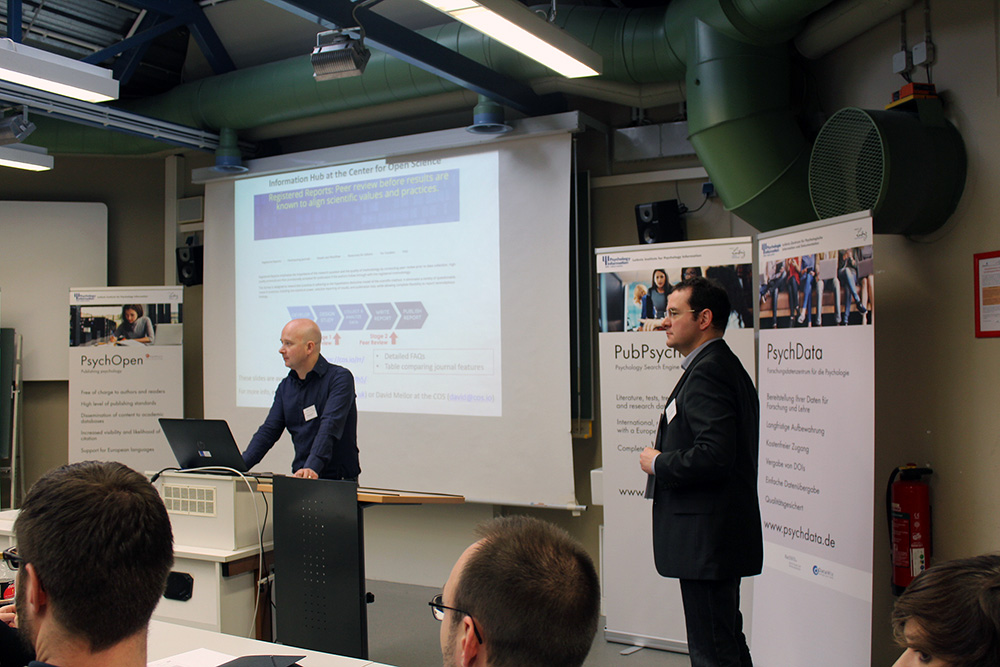In order to make research more transparent and also more honest preregistration of studies is, according to a number of scientists, a good procedure for this purpose. The Leibniz Institute for Psychology Information (ZPID) supports the idea and has therefore organized a two-day workshop on the topic.
Two international trailblazers of preregistration came as keynote speakers: Chris Chambers, professor of psychology at Cardiff University, and Joseph Cesario, associate professor of psychology at Michigan State University, and editor of the journal Comprehensive Results in Social Psychology.
Experts examine the project
Chambers has been campaigning for years to register studies before data collection. »Too much emphasis is still being placed on results rather than the way in which results are achieved«, Chambers said. However, if the researcher is put under pressure to present good results, this sometimes leads to a change in his hypothesis during the course of a study, for example, and to writing about what he has found. »We need a change in mindset,« Chambers said. He is always astonished, when he is told one disagrees with the results. »What am I supposed to do as a scientist with this statement? Trials should be blind to results.«
Registered reports should support this. This means that scientific journals promoting preregistration will only examine the project, consisting of its theoretical embedding, the hypotheses and the methods of data collection and evaluation to be applied, before the study is carried out. If the project is assessed positively by independent experts, a publication will be promised, irrespective of the data situation to be determined.
Joseph Cesario practices this process as editor. He presented his experiences with the journal Comprehensive Results in Social Psychology (with co-founding editor Kai Jonas) to the workshop participants and emphasized that not all manuscripts are accepted. There are many reasons for a rejection »for example, the method to be used or that common literature is unknown«.
Changing habits
He sees the advantages of preregistration as being that good scientific work is appreciated. »It changes the way of working and breaks a habit. Our goal is not to gain statistical significance, but to discover the world.« His aim is to make scientific work better.
In the future, ZPID itself will offer the possibility of registering studies in advance. ZPID Director Professor Michael Bosnjak says: »We will promote the format.« In which form, however, whether as a journal or as an exchange platform to bring researchers and scientific journals together, is still open. »We are already working on incentives for preregistration, such as free data collection." Chris Chambers praised the ZPID's plan: »This really is a groundbreaking new path,« he summed up.



